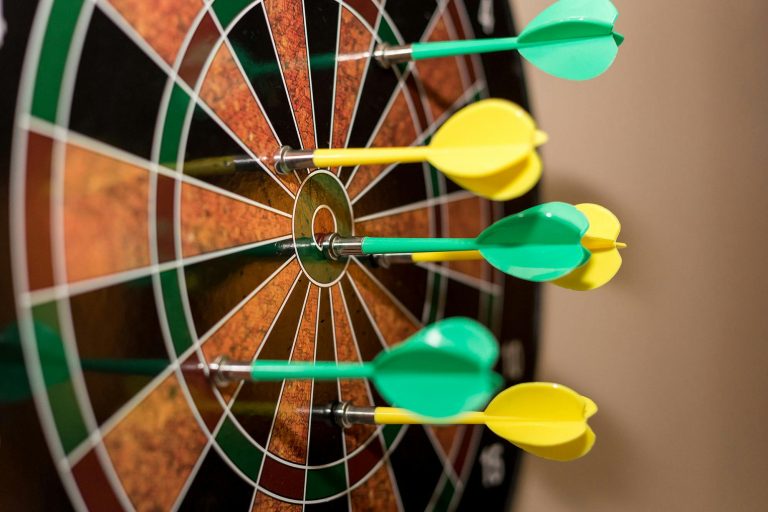Why Am I Always Lonely? 7 Hidden Reasons You Never Considered
If you’ve ever asked yourself, Why am I always lonely?, you’re definitely not alone. Feeling lonely is something that can affect anyone, no matter how many friends or family members you have. It’s not just about being alone, it’s a complex mix of emotions influenced by psychology, social dynamics, and even biology. Let’s explore seven hidden reasons why you might feel this way and what you can do about them.
1. You Have Unmet Emotional Needs
We all thrive on emotional connections. If your relationships lack depth, vulnerability, or emotional support, you might feel lonely even when surrounded by people. This can happen if your conversations feel superficial, you don’t feel truly seen or understood, or you avoid opening up due to fear of rejection.
According to research published by Wheeler, Reis, & Nezlek, the quality of social interactions matters more than quantity when it comes to alleviating loneliness.
Signs of Unmet Emotional Needs:
- Superficial conversations: You’re not really sharing anything meaningful with others.
- Feeling unseen or misunderstood: You don’t feel recognized or validated by those around you.
- Avoiding vulnerability: You’re afraid of being judged or rejected, so you keep things light.
What You Can Do About It:
- Prioritize deep connections: Focus on building fewer but more meaningful relationships rather than trying to have a huge social circle. It’s better to have a few close friends than a bunch of acquaintances.
- Express your feelings honestly: Share your emotions with trusted friends or a therapist to foster deeper connections. It’s okay to be vulnerable. It can actually help you build stronger relationships.
- Join support groups: Engage in online communities or support groups that encourage real conversations and emotional sharing. These can be great places to connect with others who understand what you’re going through.
2. You Struggle with Self-Worth
If you have low self-esteem, you might feel lonelier because you don’t believe you’re worthy of connection. This can lead to withdrawing from others or misunderstanding social situations. A study by Vanhalst et al. (2013) found that people with low self-esteem felt lonelier and were less likely to reach out for support.
What You Can Do About It:
- Challenge negative self-talk: Recognize and counteract those self-criticizing thoughts. We all have them, but they don’t have to define us.
- Practice self-compassion: Treat yourself with kindness and acknowledge your intrinsic value. You’re worth so much more than you think!
- Surround yourself with supportive people: Spend time with individuals who uplift and support you. They can help boost your self-esteem and make you feel more connected.
3. You Rely Too Much on Social Media
Social media can create the illusion of connection while actually deepening loneliness. A comprehensive study published in the Journal of Social and Clinical Psychology by Hunt et al. (2018) found that limiting social media use to 30 minutes per day led to significant reductions in loneliness and depression.
What You Can Do About It:
- Set daily limits: Establish boundaries on your social media use. It’s easy to get sucked into scrolling, but it’s not doing you any favors.
- Focus on quality over quantity: Engage meaningfully with others online rather than just scrolling. Comment, share, and interact with posts that resonate with you.
- Prioritize face-to-face interactions: Whenever possible, opt for in-person connections over digital ones. There’s no substitute for real-life interactions.
4. You Have a Fear of Vulnerability
Avoiding vulnerability can prevent you from forming meaningful connections. Research published in the Handbook of Personal Relationships by Reis & Shaver (1988) highlights that self-disclosure and vulnerability are essential components of relationship formation and maintenance. Learn more about this research here.
What You Can Do About It:
- Start small: Begin by sharing your thoughts with a trusted friend or journal privately. It’s a safe way to start being more open.
- Remind yourself of authenticity’s value: Recognize that being genuine attracts deeper connections. People are more likely to connect with you if you’re being real.
- Gradually increase vulnerability: Take small risks in expressing your emotions to build trust and intimacy. It might feel scary at first, but it’s worth it!
5. You’re Experiencing Social Fatigue
Loneliness doesn’t always mean a lack of interaction. If you feel drained by socializing, it could be because you’re engaging in unfulfilling relationships or overcommitting.
Research shows that forced social interactions can sometimes make feelings of loneliness worse instead of better. A study titled “Alone in a Crowd: Is Social Contact Associated with Less Psychological Pain of Loneliness in Everyday Life?” by Olga Stavrova and Dongning Ren (2023), examined this phenomenon. In short, if the social contact isn’t meaningful or feels forced, it can actually make you feel more lonely. It’s better to focus on building genuine, supportive relationships to help reduce loneliness.
What You Can Do About It:
- Assess relationships: Identify which relationships energize you versus those that drain you. It’s okay to prioritize the ones that make you feel good.
- Set boundaries: Give yourself permission to say no to obligations that feel forced. You don’t have to do everything. It’s okay to take a step back.
- Recharge alone: Spend time alone in ways that rejuvenate rather than isolate you. Whether it’s reading, hiking, or meditating, make sure you’re doing things that make you happy.
6. Your Environment Doesn’t Support Connection
Sometimes, loneliness is about your surroundings. Living in a fast-paced city, working remotely, or lacking opportunities to meet like-minded people can feel isolating. A study called “Evidence that loneliness can be reduced by a whole-of-community intervention to increase neighbourhood identification” suggests that neighborhood characteristics and community resources significantly impact social connectedness and feelings of loneliness.
What You Can Do About It:
- Join local groups: Engage in community activities, hobby clubs, or volunteer work. These are great ways to meet new people who share your interests.
- Try co-working spaces: Attend networking events or use shared workspaces to meet new people. It’s a good way to connect with others in your field or community.
- Consider environmental changes: If your current environment consistently makes you feel alone, consider relocating or making significant changes. It might be time for a fresh start. I’m in the process of doing this myself, and let me tell you: it feels amazing already!
7. You May Be Dealing with Depression or Anxiety
Loneliness can be a symptom of underlying mental health conditions like depression or anxiety. In their 2010 study, Cacioppo, Hawkley, and Thisted looked at how loneliness and depression affect each other. They found that loneliness can lead to depression, and depression can make loneliness worse. Essentially, each one can cause or increase the other over time. You can read the study here.
What You Can Do About It:
- Seek professional help: Therapy can provide tools to navigate loneliness and address underlying conditions. It’s a brave step, but it can really help. Make sure to find the right therapist for you!
- Practice mindfulness and self-care: Engage in activities that promote mental well-being. Whether it’s exercise, meditation, or spending time in nature, make sure you’re taking care of yourself.
- Recognize loneliness as temporary: Understand that loneliness is a feeling, not a permanent state. It can change with time and effort. If you put in the work, you can change your life.
You’re Not Alone: Seeking Support
If loneliness feels overwhelming, it’s important to seek support. Services like Anonymous Friend offer a safe, non-judgmental space to talk through your feelings and explore strategies for overcoming loneliness.
One More Thing 🧡
Please remember: feeling lonely doesn’t mean there is something wrong with you. It means your needs for connection aren’t being met. The important thing is to figure out why you’re feeling lonely and take small steps toward forming deeper connections. By understanding why you feel lonely and working on the root causes, you can build stronger relationships and feel more connected.
Overcoming loneliness is a journey. It takes time and effort, but it’s worth it. You’re not alone, and there are people and resources available to help you along the way.







